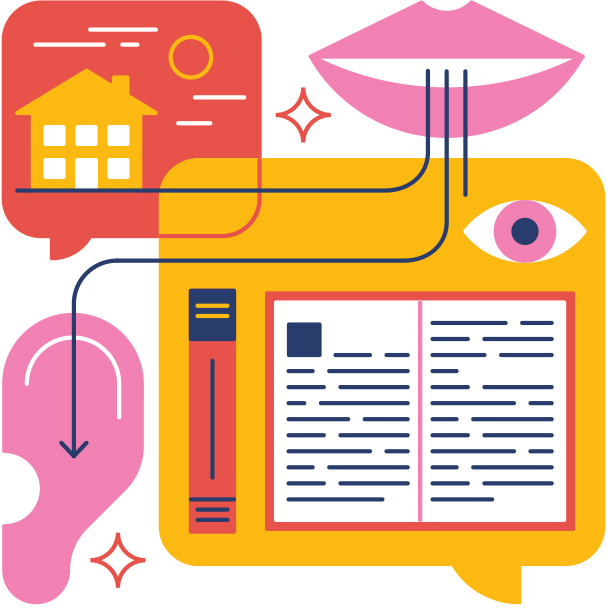
There are many ways to quantify the difference between students from low-income homes and those raised in more financially stable settings. Here’s one: 30 million words.
Between birth and the day she starts pre-K, a poor child will take part in fewer conversations, hear fewer bedtime stories, and be spoken to far less by adults than a child in a wealthy or working-class family. All those missed opportunities contribute to a staggering disparity: According to research presented in a 2003 American Educator article, the average child raised by professional parents hears 215,000 words a week, compared with 125,000 for one in a working-class household and only 62,000 for one raised in a low-income home. This creates a ripple effect; children who hear fewer words in their earliest years have smaller vocabularies and a harder time learning to read and write. There’s also a more subtle gap. Kids in wealthier families aren’t only exposed to more language overall, but the words they hear are also more encouraging (“great job”) than discouraging (“stop that”), which makes them more confident when they reach school age.
To help lower-income children overcome this conversation and confidence deficit, the Atlanta Speech School’s Rollins Center for Language and Literacy has created a teacher-training program that emphasizes conversation, story reading, and encouragement. A pilot program started in 2007, training sixty teachers at the Charles R. Drew Charter School in East Lake, who in turn reached 720 students. The data was impressive. For instance, at the beginning of the school year, only 6 percent of pre-K children with below average vocabulary were deemed “reading ready”; by the end of the school year, the number increased more than tenfold. Philanthropies like the Joseph B. Whitehead Foundation and the Zeist Foundation jumped on board, and the center was able to grow.
Throughout the years, the program has expanded to eighty-seven schools and preschools throughout metro Atlanta—and as far away as Crisp County. The Rollins Center provides teachers with workshops, in-class mentoring, co-teaching, and free online instruction.
The program allows the Atlanta Speech School to share its expertise, which has been honed over six decades and includes programs for children with a range of language-related learning differences, such as hearing problems and dyslexia. Founded in 1938, the school’s campus now encompasses four schools and five clinics and enrolls about 400 children. By contrast, during the 2013–2014 school year, the Rollins Center trained 980 teachers in 457 classrooms, reaching 7,600 students.
The center’s ultimate goal: To ensure that by 2020 all Georgia kids entering kindergarten are on path to read on grade level by third grade. “We want to empower teachers to empower children,” says Rollins director of academic development Kim Day. “We want children walking through that kindergarten door ready to learn to read.”










![The North Carolina Museum of Natural Sciences’ newest exhibit is a [pre]historic first](https://cdn2.atlantamagazine.com/wp-content/uploads/sites/4/2024/04/DD-3-100x70.jpg)


